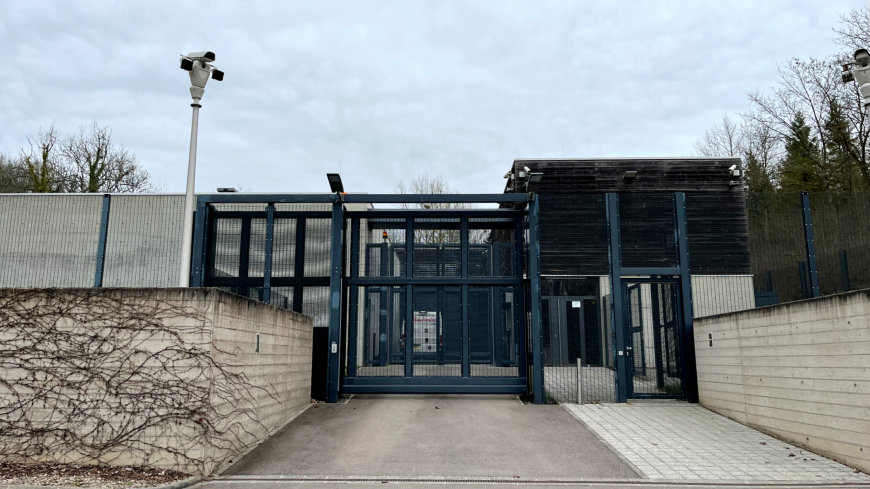During the visit, the CPT examined the treatment of persons deprived of their liberty by the police and of persons detained in the two closed prisons. The Committee also examined the situation of patients subject to a placement measure in several closed psychiatric units in two hospitals. Particular attention was paid to the situation of children deprived of their liberty at the CPL and at the Security Unit (Unisec) of the State Socio-educational Centre.
Regarding the situation of children deprived of their liberty in Luxembourg, the delegation received no allegations of physical ill-treatment. While a reform of the youth protection system is currently being adopted in Luxembourg, it is regrettable that the Luxembourg authorities have still not implemented the CPT's recommendation, issued repeatedly since its very first visit in 1993, demanding that children no longer be incarcerated at the CPL. During its visit, the delegation found that their living conditions at the CPL were unacceptable in view of the material conditions which were unsuitable for children, without strict separation from adult detainees, and the regime offered which was impoverished, meaning that children were left to their own devices. In addition, the Committee noted that the living conditions at Unisec, a security unit for children opened at the end of 2017, were also deplorable for children due to the degraded material conditions and impoverished regime, in particular following incidents of repeated violence. Despite some positive changes since the end of the visit, the authorities must continue their efforts to improve living conditions at Unisec, expand the activities offered to children and reduce incidents of violence between young people. More generally, the CPT once again recommends that legislation in Luxembourg be amended in order to strengthen the guarantees attached to child placement procedures.
With regard to persons deprived of their liberty by the police, the delegation received some allegations of physical ill-treatment by police officers during their police custody and excessive use of force during their apprehension, involving beatings with truncheons and punches and/or slaps. Several people also said they had been subjected to insults and, in one case, threats of being beaten by the police. Actions taken to prevent and effectively combat police ill-treatment and excessive use of force must be strengthened. Furthermore, the Committee regrets that the Grand-Ducal Police continue to interrogate certain suspects through the bars of the "security cells" – cells measuring barely 2 m2, located inside the interview offices in most police stations. In the opinion of the Committee, the use of these security cells during interviews could be considered humiliating, even potentially degrading, for the persons concerned. The CPT calls on the Luxembourg authorities to no longer place suspects in such cells during police questioning, the ultimate objective being to dismantle them entirely. In its report, the Committee remains concerned about the security measures applied by the police, in particular the lack of confidentiality during medical examinations, the systematic use of searches and handcuffing during transfers, and the practice of tying detainees to fixed objects in courts and hospitals.
In the prisons visited, the delegation welcomes the fact that no allegations of physical ill-treatment of detainees by staff have been brought to its attention, and in its report the Committee emphasises the material conditions which were considered to be excellent in the new Uerschterhaff Prison (CPU).
The Committee also examined the closed psychiatry sector in the Grand Duchy, which is currently facing several structural problems, in particular the lack of places and structures available, and a shortage of psychiatrists. The CPT requests information from the authorities on the measures taken to deal with this, including the planned opening of a “socio-judicial psychiatry unit”. In its report, the Committee reiterates that urgent measures must be taken to ensure that all patients placed in closed psychiatric units can benefit from daily outdoor exercise in an appropriate outdoor space. Furthermore, in the two hospitals visited, the CPT noted an excessive use, even a generalised practice, of pro re nata (PRN) prescriptions. The Committee recommends better regulating this practice, and reducing its frequency when it comes to the use of rapid-acting tranquilizers by injection. In addition, the CPT noted excessive use of mechanical restraint in the intensive psychiatry unit of the Émile Mayrisch Hospital (CHEM), including for long periods of time and without direct and continuous observation by nurses. The Committee considers it unacceptable that mechanical and chemical restraint measures are also applied on the basis of a PRN prescription, and also calls on the authorities to strengthen safeguards in the event of involuntary placement.
The report is made public in accordance with the automatic publication procedure adopted by the Luxembourg Government.
- Read the report (in French)
- Read the summary of the report (in French)
- The CPT and Luxembourg




